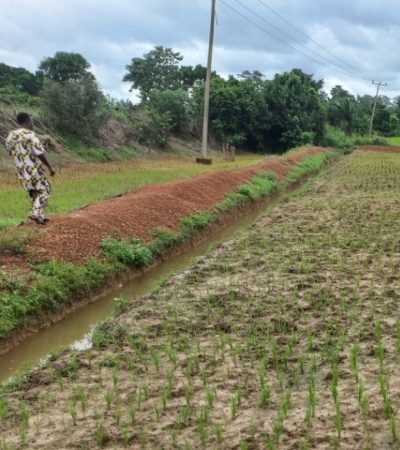In agriculture, good seeds make good harvests. And in Senegal, good harvests make for better incomes for farmers and improved food security for all.
To this end, Feed the Future is helping farmers in the Senegal River Valley access more and better seeds by upgrading the infrastructure for seed processing and introducing new models for management of these facilities. One seed processing plant has since doubled its annual output of certified quality seeds to better meet demand.
“With a modernized facility and a new, innovative business model, we can meet our targets for high-quality, certified seeds across the entire valley region – and on time,” says Ousseynou Ndiaye, president of the region’s primary farmers’ union. “Certified seeds can increase yields by up to 25 percent.”
On the edge of the Senegal River Valley, a focus region for the U.S. Government’s Feed the Future initiative given its high food security needs and potential, Senegal’s Regional Directorate for Rural Development had been operating the seed treatment center since 1997. The center developed seeds for the entire valley.
But with infrastructure dating back to the French colonial era and equipment consisting of just two, old processing lines, the center struggled to meet the demand of seed business operators and farmers as the country grew and the economy expanded. With a capacity of just 3,500 tons a year, the center’s antiquated infrastructure fell far short of meeting demand for quality seeds year after year.
In line with the priority given to seed availability in Senegal’s national rice self-sufficiency program, Feed the Future invested in modernizing and rehabilitating the center by adding a new sorting line that increased capacity by 3.5 tons per hour. This upgrade has enabled the center to double annual production from 3,000 to 6,000 tons. A new generator keeps the center operating despite frequent power outages.
After completing the renovation, Feed the Future brought the Ministry of Agriculture together with the Northern Seed Cooperative union, representing 90 percent of the Rift Valley’s farmers, to allow the private sector organization to manage and improve productivity of the government-owned facility.
“We will manage the center more efficiently with this partnership,” Ndiaye says. “The improved capacity at the center will allow us to purchase additional equipment such as a weigh bridge and mobile seed treatment units to cover remote areas to the south and east.”
Center director Mamadou Diop added that not only can the revitalized facility help the government meet higher demand for certified seeds, but it also improves working conditions for staff.
Feed the Future also facilitated the construction of a second, new seed processing plant in the region through another public-private partnership, helping Senegal boost its annual rice and other cereal seed processing capacity by 11,000 tons.
While public-private partnership negotiations can be long and arduous, Senegal’s Ministry of Agriculture believes Feed the Future has helped pave the way for it to further expand seed processing and storage capacity across the country to help achieve Senegal’s goal of agricultural self-sufficiency. It all starts with good seed.


